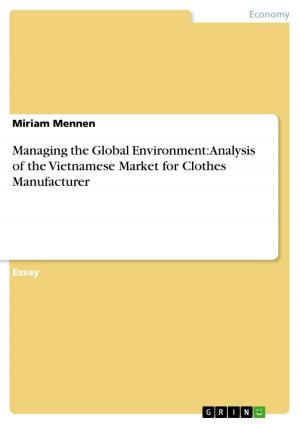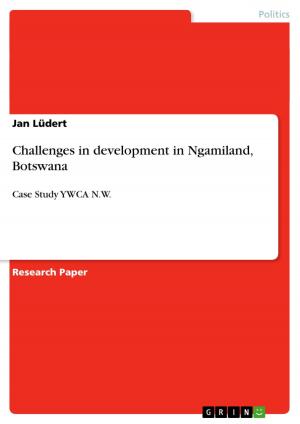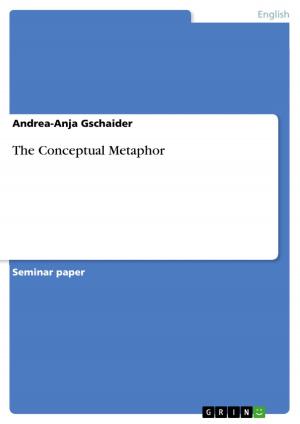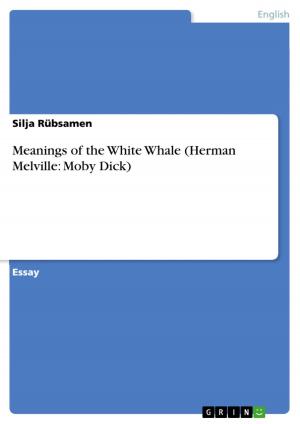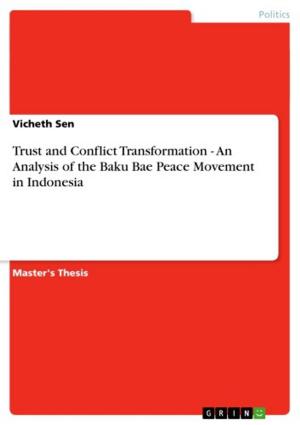The Arab World after 9/11 and the US Democratization Efforts
Nonfiction, Social & Cultural Studies, Political Science, International, International Relations| Author: | Girma Yohannes Iyassu Menelik | ISBN: | 9783640440078 |
| Publisher: | GRIN Publishing | Publication: | October 6, 2009 |
| Imprint: | GRIN Publishing | Language: | English |
| Author: | Girma Yohannes Iyassu Menelik |
| ISBN: | 9783640440078 |
| Publisher: | GRIN Publishing |
| Publication: | October 6, 2009 |
| Imprint: | GRIN Publishing |
| Language: | English |
Research Paper (postgraduate) from the year 2007 in the subject Politics - International Politics - Region: Near East, Near Orient, , language: English, abstract: The alleged Al Qaeda attacks of November 9, 2001, have dramatically distorted the political environment between the Muslim and the Western world. Muslims live in a vast and diverse region that stretches from West Africa to the southern Philippines, as well as Muslim communities and Diaspora, scattered throughout the world. In the Muslim world, religion, politics, and culture are intertwined in complicated ways. This chapter is dedicated to dig-out and examine the dynamics that are driving changes in the political-religious landscape of the Muslim world, and to provide the global policymakers, the broader academic and security circle, with a general outline of events and recent trends, in the Islamic militia, that are most likely to affect U.S. interests and global security. In thus chapter, we can have an insight which ideological zeal Muslims in the Middle East and somewhere else seem to follow. They differ significantly not only in their religious views but also in their political and social orientation, in particular, women's rights and the content of education and their tendency for violence. Based on such political and religious analysis an exploration will be undertaken within the two main streams of Islam, first and foremost those between the Sunni and Shiia branches and between the Arab and the non-Arab Muslims straight ait down to sub-national communities, tribes, and clans However, after 9/11, the Bush Administration along with a bundle of strategies came out and advocated to democratize the Arab world. The main strategy and rationale behind the US government security interest in promoting freedom and democracy is to reduce anti-American terrorism. According to their calculus, the more democracy promoted in the Middle East the less terrorist attack on the US targets take place. Policy designers of the US government might like the idea and would like to think from the American point of view that democracy in Arabia works as in the United States. Unfortunately, there's no evidence for it and therefore, such a kind of decision making is basically wrong. In contrast, it is highly advisable to stop encouraging (and exporting) American democracy in Arabia and the Middle East.
Research Paper (postgraduate) from the year 2007 in the subject Politics - International Politics - Region: Near East, Near Orient, , language: English, abstract: The alleged Al Qaeda attacks of November 9, 2001, have dramatically distorted the political environment between the Muslim and the Western world. Muslims live in a vast and diverse region that stretches from West Africa to the southern Philippines, as well as Muslim communities and Diaspora, scattered throughout the world. In the Muslim world, religion, politics, and culture are intertwined in complicated ways. This chapter is dedicated to dig-out and examine the dynamics that are driving changes in the political-religious landscape of the Muslim world, and to provide the global policymakers, the broader academic and security circle, with a general outline of events and recent trends, in the Islamic militia, that are most likely to affect U.S. interests and global security. In thus chapter, we can have an insight which ideological zeal Muslims in the Middle East and somewhere else seem to follow. They differ significantly not only in their religious views but also in their political and social orientation, in particular, women's rights and the content of education and their tendency for violence. Based on such political and religious analysis an exploration will be undertaken within the two main streams of Islam, first and foremost those between the Sunni and Shiia branches and between the Arab and the non-Arab Muslims straight ait down to sub-national communities, tribes, and clans However, after 9/11, the Bush Administration along with a bundle of strategies came out and advocated to democratize the Arab world. The main strategy and rationale behind the US government security interest in promoting freedom and democracy is to reduce anti-American terrorism. According to their calculus, the more democracy promoted in the Middle East the less terrorist attack on the US targets take place. Policy designers of the US government might like the idea and would like to think from the American point of view that democracy in Arabia works as in the United States. Unfortunately, there's no evidence for it and therefore, such a kind of decision making is basically wrong. In contrast, it is highly advisable to stop encouraging (and exporting) American democracy in Arabia and the Middle East.

